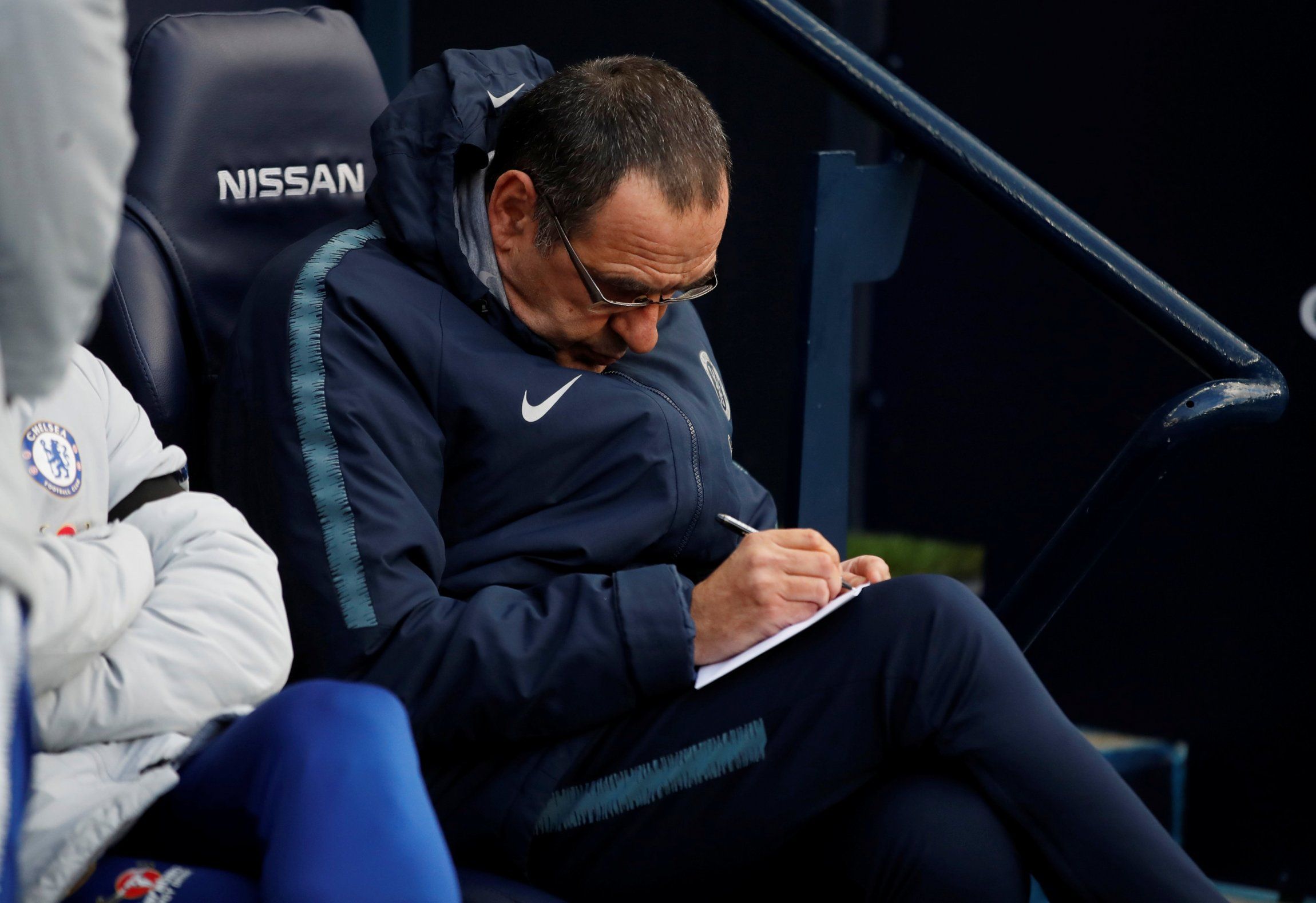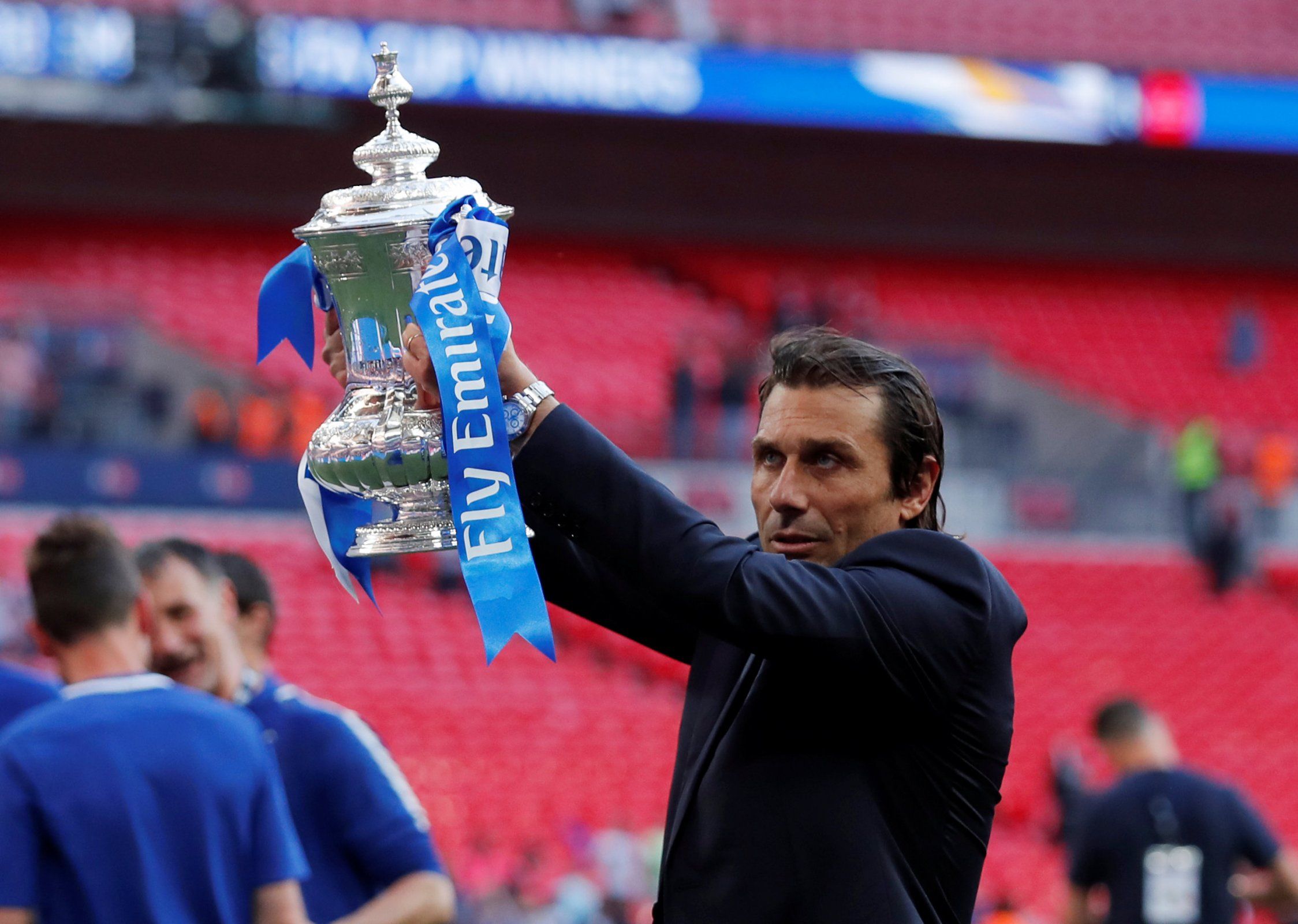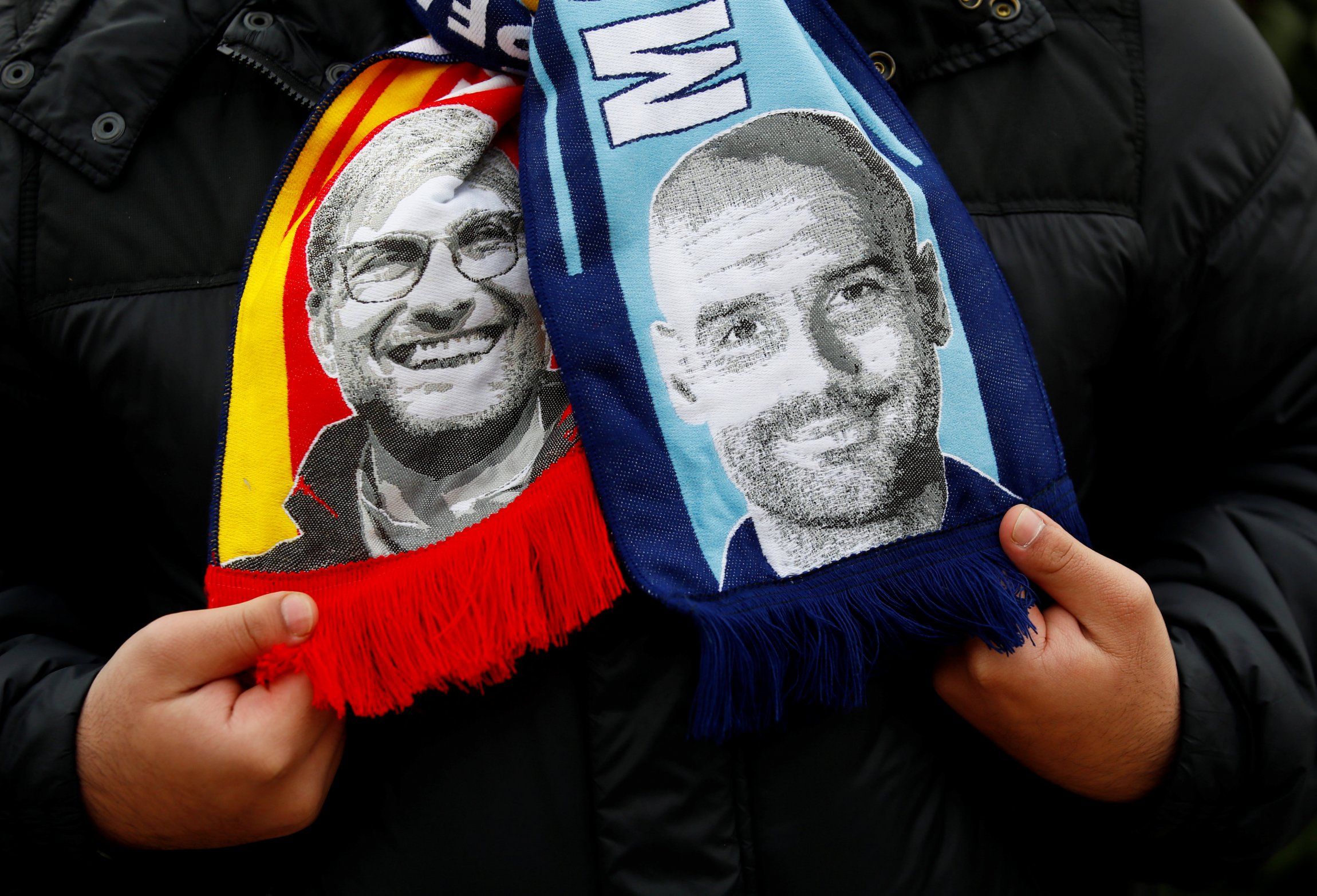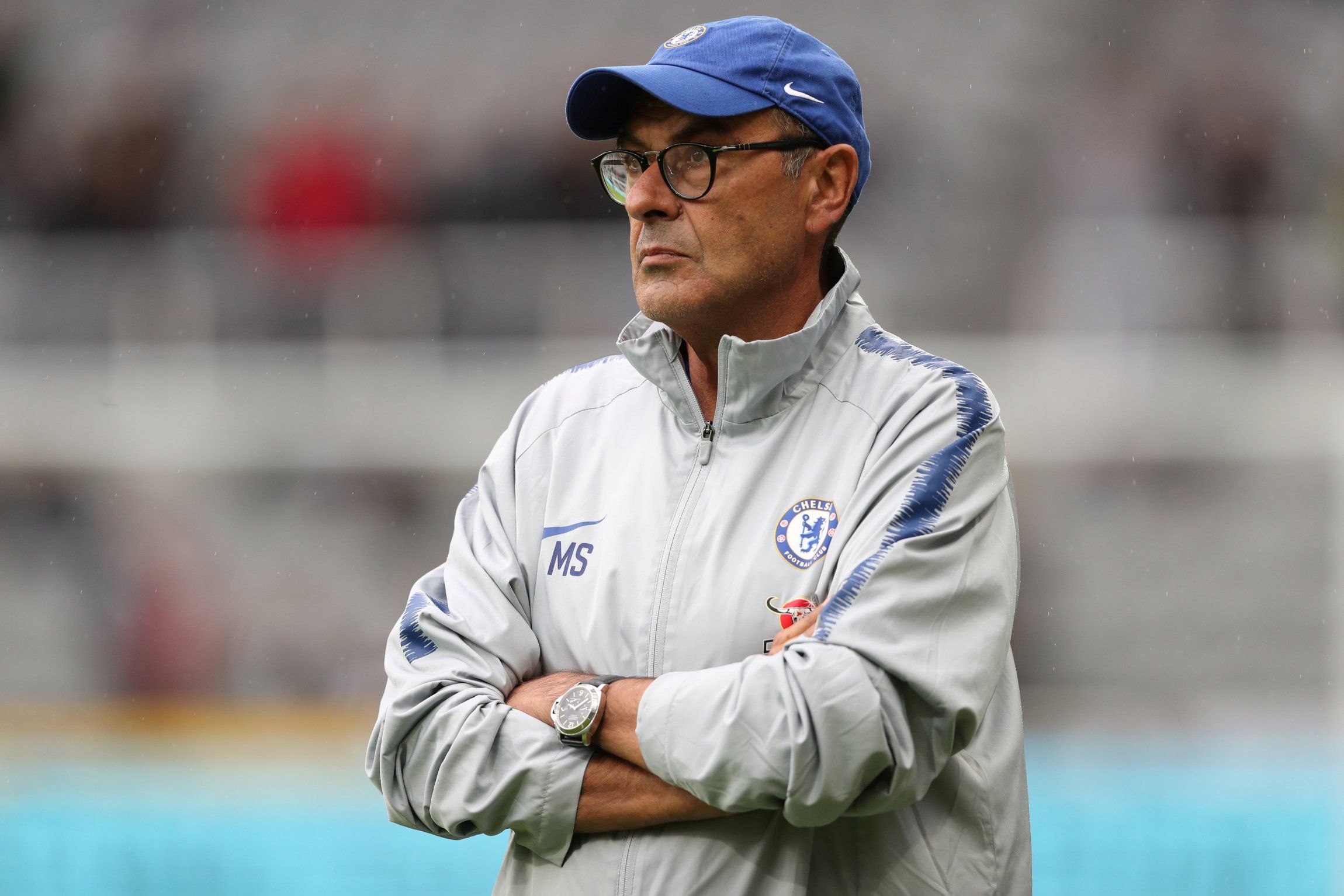[ad_pod ]
With the appointment of Maurizio Sarri last summer, Chelsea tacitly accepted that they had fallen behind the rest of the Premier League's top clubs philosophically.
Liverpool, Manchester City and Tottenham have all created identities, playing styles and approaches in which winning silverware is just the byproduct; the sheer entertainment, enjoyment and optimism they create, in the immediate term at least, is the most fundamental benefit, and an important one during an era where six major clubs can conceivably win any three of the domestic trophies on offer.
Compare that to Antonio Conte, who brought two trophies in two years to Stamford Bridge but left everybody miserable, partly through despondent demeanour and partly through an increasingly mind-numbing penchant for tactical pragmatism.
Even Chelsea's 6-0 defeat to Manchester City on Sunday paid homage to that; while it was the Blues' biggest loss in 28 years, Chelsea at least attacked in patches at the Etihad Stadium and approached the game with earnest intentions. When Conte took Chelsea there last season, they lost 2-0 without creating anything that could be considered a meaningful attack and until the last few minutes failed to even venture outside of their own half.
Whether Roman Abramovich prefers to see his team go down swinging or limit damage with whatever qualifies as the footballing equivalent of a clinch is a decision the Chelsea owner will have to make, one that will determine whether his sudden interest in a more ambitious brand of football is genuine or merely a brief flirtation.
But regardless, the fundamental problem with Sarri isn't the style of football he offers Chelsea, but the tactical stubbornness accompanying it. That's where Chelsea fall short of Liverpool, Manchester City and Tottenham, the clubs Sarri's appointment was an attempt to emulate.
It shouldn't be forgotten this is Sarri's first season, one in which he has continuously warned that Chelsea aren't in shape to truly compete for the title, and it shouldn't be forgotten that Pep Guardiola, Jurgen Klopp and Mauricio Pochettino all struggled during their opening campaigns as they introduced significant changes to style of play. In fact, they finished up third, eighth and fifth respectively, barely improving if not worsening the efforts of their predecessors.
But those three managers, even during their inaugural seasons, were open to experimentation. Perhaps not in style, but certainly in personnel, shape and structure. That has only been more the case since Conte's introduction of 3-4-3 filtered out through the rest of the Premier League; even if just for a handful of games per season, it made every club recognise the need for a Plan B, a second setup whether that be to simply facilitate opponents with three-man defences or find a different manner of beating sides that came their way.
This season alone - according to Whoscored - Manchester City and Liverpool have used four different formations in the Premier League, Tottenham and Arsenal have used seven and Manchester United have used nine. Four of those five, Liverpool the exception, have switched between a back four and a back three at least once as well.
Chelsea though, have been set up in a 4-3-3 system, one anchoring midfielder behind two box-to-box players, for every minute of every game so far this season - all 26 of them. The only slight differentials have come in personnel; Olivier Giroud is more direct than Gonzalo Higuain and Eden Hazard, Ross Barkley is more swashbuckling than Mateo Kovacic, and Willian looks to score goals in different ways to Pedro.
Fundamentally though, Chelsea have been playing exactly the same way for the entire season, even if it means sticking square pegs in round holes. N'Golo Kante has probably been the most discussed example of that, but it applies to Hazard and Ruben Loftus-Cheek as well. Sarri preferred to play Hazard out of position as a centre-forward than designing mechanics to get the best out of him in the absence of a reliable striker, while Loftus-Cheek - unquestionably a central player - has spent most of this season making cameo appearances on the wing.
At times it has bordered upon baffling, and Sunday's defeat felt like a poignant moment. After going a goal down to Raheem Sterling within the first five minutes, would there have been anything wrong with moving Kante alongside Jorginho for the next quarter of an hour to provide a stronger base in midfield? Could Ross Barkley not have pushed up and sat on Fernandinho, in the same way so many teams have done with great effect to Chelsea's own anchorman this season? Could Marcos Alonso and Cesar Azpilicueta not have tucked in to create a fully flat back four, rather than stretching themselves so thin?
This is after all, the home of the reigning Premier League champions, and while Sarri seemed genuinely perplexed when quizzed on how Chelsea have conspired to lose their last three away games, the explanation is markedly simple: unless you're the best team in the league by a country mile - which Chelsea currently aren't - you can't expect to use the same game-plan indiscriminate of opponent, venue or other circumstance and expect to continuously win games.
Jamie Carragher compared Chelsea to Arsenal after Sunday's loss in reference to their sudden lack of spine and strength. But the greater similarity, assuming Carragher was comparing to Arsene Wenger's Gunners, lays in Chelsea's painful predictability. Wenger's Arsenal increasingly paid the price for never venturing far away from 4-2-3-1, for always leaving themselves too exposed at the back and for holding onto possession to the point where it became genuinely pointless, and within just six months at Stamford Bridge it's already become patently obvious how Sarri will set up his side for any game.
Amid an era in which the overall managerial quality in English football is the highest, most complex and sophisticated its ever been, being easy to predict is predictably perilous. Sarri is a talented manager with fantastic ideas, but if he isn't prepared to bend those ideas around the necessities of reality, Chelsea will always be stuck behind the calibre of club they're trying to compete with.





